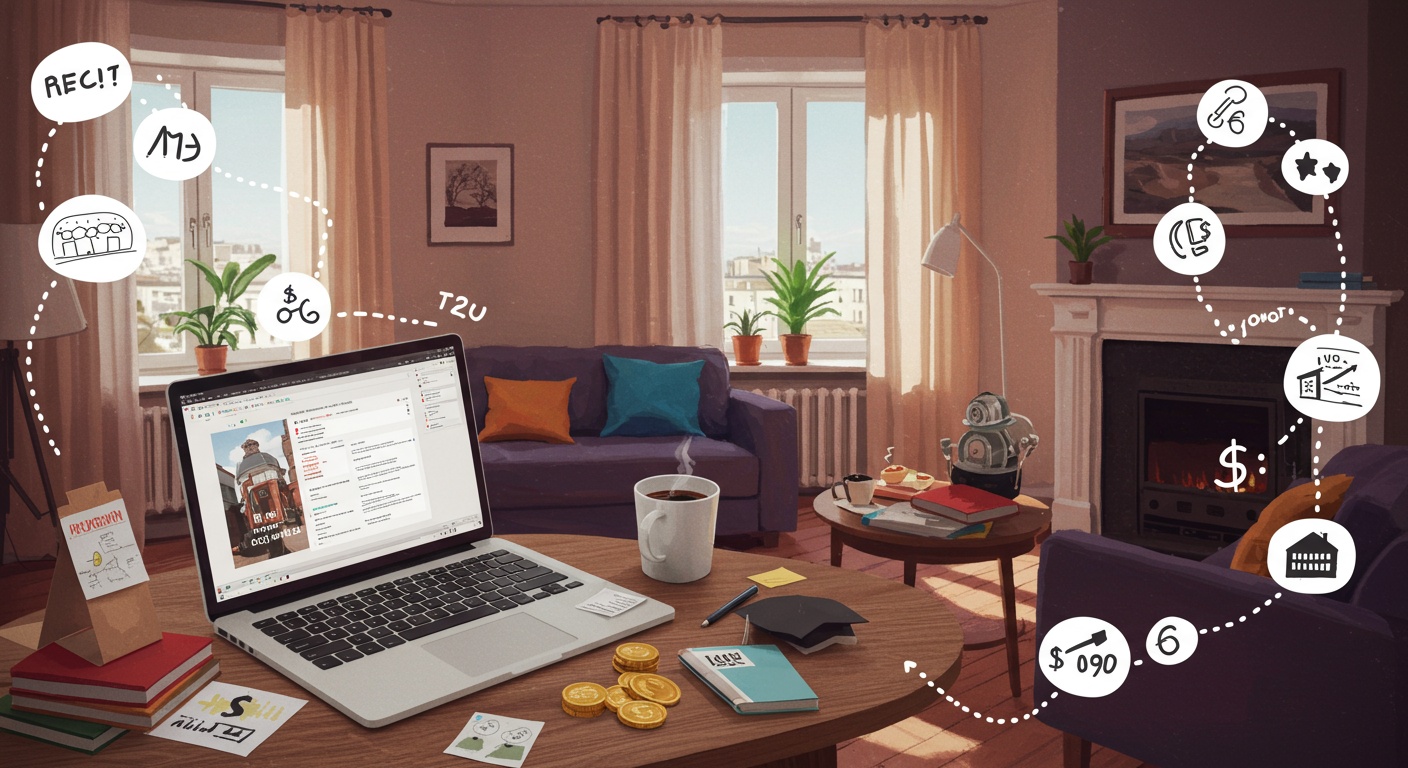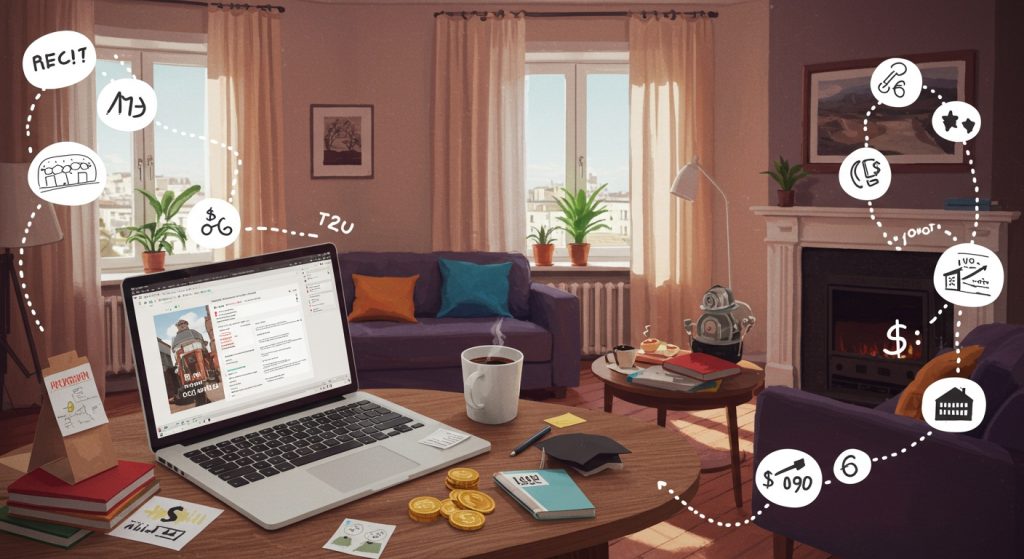Dreaming of croissants and cobblestone streets? France beckons. Beyond the romantic allure lies a crucial question: how much does student life really cost? Forget those vague estimates; we’re diving into specifics. Rising energy prices are impacting housing costs, especially in older buildings prevalent in university cities like Lyon. Meanwhile, the increasing popularity of alternance programs, combining study with paid work, offers a potential offset. From understanding the nuances of CAF housing assistance eligibility to navigating the regional differences in mutuelle (health insurance) costs, we’ll unpack the financial realities. Expect detailed breakdowns of tuition fees (which vary significantly between public and private institutions), transportation expenses. The true cost of that perfect café au lait habit. Let’s demystify the euros and cents, so you can focus on mastering French and making memories.

Understanding the Key Expenses: A Breakdown
Moving to France for your studies is an exciting venture! But before you pack your bags, it’s essential to grasp the financial landscape. The cost of living in France as a student can vary significantly depending on the city, lifestyle. Program you choose. Let’s break down the main expense categories:
- Accommodation: This is typically the biggest expense. Options range from university residences (CROUS) to private studios and shared apartments.
- Tuition Fees: These vary greatly depending on your nationality, the type of institution (public or private). The level of study (Bachelor’s, Master’s, Doctorate).
- Food: Groceries, eating out. Those essential daily coffees all add up.
- Transportation: Public transport, bicycles, or even the occasional taxi ride – consider your commuting needs.
- Utilities: Electricity, gas, internet. Phone bills.
- Health Insurance: Mandatory for all students in France.
- Personal Expenses: This covers everything else, from books and stationery to entertainment and travel.
Accommodation: Where You Live Matters
The cost of accommodation is heavily influenced by location. Paris is notoriously expensive, while smaller cities and towns offer more affordable options. Here’s a closer look at your choices:
- CROUS Residences: These are university-managed student residences and are the most affordable option, typically ranging from €200 to €400 per month. But, demand is high. Securing a place can be competitive.
- Private Student Residences: These offer more amenities than CROUS residences but come at a higher cost, generally between €400 and €700 per month.
- Private Studios/Apartments: Renting a studio or apartment independently offers more privacy but is the most expensive option, potentially exceeding €800 per month in Paris and other major cities.
- Shared Apartments (Colocation): Sharing an apartment with other students is a popular and cost-effective way to live in France. Expect to pay between €400 and €600 per month, depending on the location and the size of the apartment.
Real-world Example: Marie, a student from Germany studying in Lyon, opted for a shared apartment with two other students. She pays €450 per month, including utilities. This allows her to live comfortably while still having money for social activities.
Tuition Fees: Public vs. Private Universities
Tuition fees in France are generally lower than in many other countries, especially at public universities. But, there are differences based on your nationality and the type of institution you attend.
- Public Universities: For EU/EEA/Swiss students, tuition fees are heavily subsidized. As of 2024, Bachelor’s degrees typically cost around €170 per year, Master’s degrees around €243 per year. PhDs around €380 per year. Non-EU/EEA students generally pay higher fees. These are still relatively affordable compared to other countries like the US or the UK.
- Private Universities: Private institutions set their own fees, which can be significantly higher, ranging from €3,000 to €20,000 per year or more.
- “Grandes Écoles”: These prestigious institutions, often specializing in engineering or business, also have higher tuition fees than public universities.
crucial Note: Tuition fees are subject to change, so it’s always best to check the specific fees for your chosen program and university.
Food: Budgeting for Meals
Food costs can be managed effectively with a bit of planning. Here’s a breakdown:
- Groceries: Cooking your own meals is the most budget-friendly option. Expect to spend around €200 to €300 per month on groceries. Discount supermarkets like Lidl and Aldi offer the best prices.
- University Restaurants (Restos U): These offer subsidized meals for students, typically costing around €3. 30 per meal. They are a great option for affordable lunches and dinners.
- Eating Out: Eating out regularly can quickly drain your budget. A simple meal at a restaurant can cost between €15 and €25.
Personal Anecdote: When I studied in Paris, I made a habit of cooking most of my meals at home and only eating out occasionally. This helped me save a significant amount of money.
Transportation: Getting Around
France has excellent public transportation systems, especially in major cities.
- Public Transport: Most cities offer student discounts on monthly or annual passes. In Paris, for example, a monthly Navigo pass for students costs around €35.
- Bicycles: Many cities have bike-sharing programs, such as Vélib’ in Paris, which offer an affordable way to get around.
- Trains: If you plan to travel around France, consider purchasing a Carte Jeune (Youth Card), which offers discounts on train tickets.
Case Study: A student in Toulouse relies heavily on the city’s tram and bus network. With a student pass costing €10 per month, transportation is a minimal expense in their overall budget.
Utilities: Staying Connected
Utilities include electricity, gas, internet. Phone bills. Here’s what to expect:
- Electricity and Gas: These costs will depend on your usage and the size of your accommodation. Expect to pay around €50 to €100 per month.
- Internet and Phone: Many providers offer bundled packages for internet, phone. TV. A basic package typically costs around €20 to €40 per month.
Tip: Compare different providers to find the best deals. Free Mobile and Sosh are popular budget-friendly options.
Health Insurance: A Must-Have
Health insurance is mandatory for all students in France. Here’s what you need to know:
- Social Security (Sécurité Sociale): Most students are eligible for free coverage under the French social security system.
- Complementary Health Insurance (Mutuelle): This provides additional coverage for expenses not fully covered by social security. Expect to pay around €50 to €100 per year for a basic mutuelle.
essential: Make sure to register with the French social security system as soon as you arrive in France.
Personal Expenses: The Fun Stuff
This category includes everything else, from books and stationery to entertainment and travel. It’s essential to budget for these expenses as well.
- Books and Stationery: Expect to spend around €50 to €100 per semester on books and stationery.
- Entertainment: This includes going to the movies, concerts, museums. Bars. Budget according to your lifestyle.
- Travel: If you plan to travel around France or Europe, factor in transportation, accommodation. Food costs.
Regional Cost Variations: Paris vs. Provinces
The cost of living varies dramatically depending on the region. Paris is by far the most expensive city, followed by other major metropolitan areas like Lyon, Nice. Marseille. Smaller cities and towns in the provinces offer significantly lower costs of living.
| City | Average Monthly Rent (Studio Apartment) | Average Monthly Food Cost | Average Monthly Transportation Cost |
|---|---|---|---|
| Paris | €900 – €1300 | €300 – €400 | €75 |
| Lyon | €600 – €900 | €250 – €350 | €65 |
| Toulouse | €500 – €800 | €200 – €300 | €55 |
| Lille | €550 – €850 | €220 – €320 | €50 |
Tips for Saving Money as a Student in France
Living on a student budget requires careful planning and resourcefulness. Here are some tips to help you save money:
- Apply for Scholarships and Grants: Many organizations offer scholarships and grants to international students. Research and apply for as many as you are eligible for. Campus France is a great resource for finding funding opportunities to study at a university in France.
- Cook Your Own Meals: Eating out regularly can quickly drain your budget. Cooking your own meals is much more affordable.
- Take Advantage of Student Discounts: Many businesses offer discounts to students. Always ask if a student discount is available.
- Buy Secondhand Books: Textbooks can be expensive. Consider buying secondhand books or renting them from the library.
- Use Public Transport or Cycle: Avoid using taxis whenever possible. Public transport and cycling are much more affordable.
- Look for Free Activities: Many cities offer free activities, such as concerts, museum days. Outdoor events.
- Manage your utilities carefully: Be mindful of your energy usage to avoid high bills.
Conclusion
Living as a student in France is an investment, not just in euros. In your future. Beyond tuition and rent, remember to factor in the hidden costs – the daily baguette (€1-2), the occasional museum visit (often discounted for students). The social “apéros” that are crucial for integration. Pro-tip: explore “marchés” for affordable fresh produce and consider cooking with friends to split costs and build community. Don’t be afraid to leverage student discounts and explore options like CROUS housing to minimize expenses. The recent rise in energy costs has impacted everyone, so be mindful of your consumption. Ultimately, budgeting and resourcefulness are your best allies. A French education is a valuable asset. With smart planning, it’s an achievable dream. Now, go forth and conquer your studies! Consider to apply for a student scholarship!
More Articles
Global Scholars: Unlocking University Scholarships for International Students
Funding Your Future: A Step-by-Step Guide to University Financial Aid
Match Made: Choosing a University Course Aligning with Your Career Aspirations
Wellbeing on Campus: Navigating University Mental Health Support Systems
FAQs
So, how much money are we really talking to live in France as a student?
Alright, let’s break it down. Honestly, it’s a range. You’re generally looking at anywhere from €800 to €1500 per month. Paris is, predictably, the most expensive, while smaller cities like Lille or Lyon are kinder to your wallet. It all depends on your lifestyle and where you choose to live!
What’s the biggest cost to consider?
Housing, hands down. Finding affordable student accommodation is key. Think about student residences (CROUS, if you’re eligible), shared apartments, or studios. Location is everything, too; closer to the center means higher rent.
Is Paris that much more expensive than other cities?
Yep, it really is. Expect to pay significantly more for rent, groceries. Even just a cup of coffee in Paris. If you’re on a tight budget, consider other fantastic university cities in France – you’ll still get a great experience without emptying your bank account.
What about tuition fees? Are they crazy expensive?
Good news! Tuition fees at public universities are relatively low compared to, say, the US or the UK. But, non-EU students often pay higher rates, so it’s crucial to check the specific fees for your program and nationality. Private universities are always pricier.
Beyond rent and tuition, where does my money go?
Think about food (groceries or eating out), transportation (monthly passes are usually a good deal), health insurance (mandatory!) , phone/internet. Of course, fun! Budget for socializing, exploring. Maybe even a weekend trip or two. Don’t forget textbooks and school supplies either!
Any tips for saving money as a student in France?
Definitely! Cook at home as much as possible, take advantage of student discounts (they’re everywhere!) , use public transportation, buy used textbooks. Look for free activities like museum days or outdoor events. Also, consider working part-time if your visa allows it.
So, can I survive on just €800 a month?
It’s doable, especially outside of Paris. It’ll require some serious budgeting and a frugal lifestyle. You’ll likely be sharing an apartment, cooking most of your meals. Being mindful of your spending. It’s not luxurious. You can definitely make it work!



